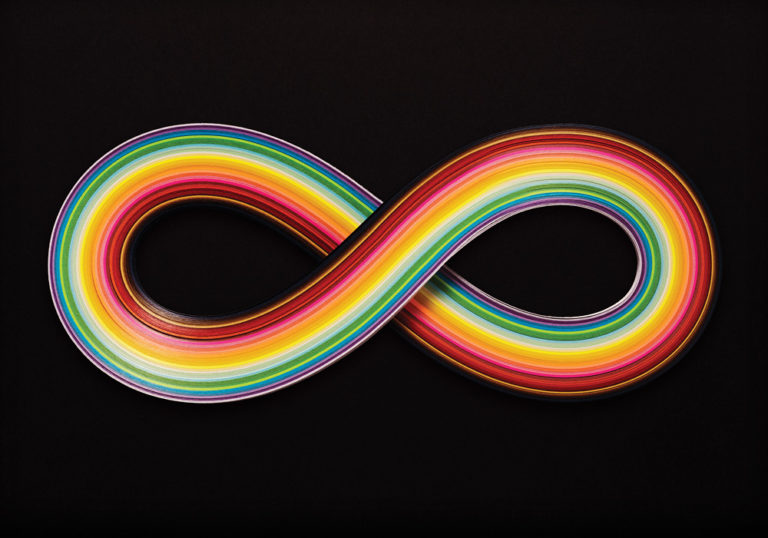How Do You Use The Word “Myriad” In A Sentence?

From college admissions to carbon emissions, it seems society these days is facing a myriad of challenges … or is it myriad challenges? Thanks, myriad. As if we don’t have enough to deal with.
Most of us have heard of the word myriad … but can you use it in a sentence? Well, we’re going help make at least one thing simpler and get to the bottom of this little word for big things.
First, what does myriad mean?
Via Latin, myriad comes from ancient Greek words, myrios, “countless,” and myrioi, “ten thousand.” (Fun fact: The D ultimately emerges from inflected forms of these words in Greek.) Liddell & Scott’s Greek-English Lexicon notes that myrioi was “the greatest number in Greek expressed by one word.” This may be why Greek also used the word to mean “infinite.”
When myriad entered English in the mid-1500s, it was a noun that meant “ten thousand” or a set of something of that number, especially soldiers. This sense has fallen away, except in historical contexts.
And, like its Greek root, myriad went on in English as a noun meaning “a very great or indefinitely great number of persons or things” … and, guess what, it was typically followed by of (e.g., a myriad of stars in the night sky.
It also became an adjective, without of (e.g., the myriad stars in the night sky).
This of is where the controversy comes in.
To “of” or not to “of”
Plenty of people use the noun construction a myriad of, but many others argue that this is incorrect. They maintain that myriad should only ever be used as an adjective, sans of. For instance, the Associated Press (AP) Stylebook currently dictates that the word myriad should be not be followed by of in AP-style writing.
The general thinking goes that myriad should be used in the same way that one would use the number 10,000. You would not say, for example “We sat outside and gazed at the 10,000 of stars in the night sky.” So, why say “the myriad of stars?”
Perhaps unbeknownst to many of the naysayers, myriad, as we saw above, was actually used earlier in English as a noun paired with of. Even more shocking? It was often plural (myriads).
As Anne Curzan, a linguistics professor at the University of Michigan, observed on the Michigan Radio segment That’s What They Say, the singular noun form of myriad (a myriad of) first appeared in English in the early 1600s. It wasn’t until the late 1700s, Curzan continued, that the of was dropped, and that it became common to use myriad as a standalone adjective.
So, which way is correct?
The question of whether you should use myriad or myriad of is largely one of style, not correctness. Both forms of the word are recognized in Standard American English. Even the plural form, myriads, is technically correct, though it’s far less common.
In the media and in everyday discussion, we find both myriad and myriad of used frequently, such as in this tweet from the Edinburgh Collage Collective celebrating International Women’s Day: “the myriad of positive ways women contribute to … our world.”
‘Women’s Day’
ECC will be celebrating International Women’s Day 8th March.
We’ll be showcasing collages dedicated to, and showing appreciation for, the myriad of positive ways women contribute to and help shape our world. Head to our Instagram page to get involved! pic.twitter.com/yGeDrBab3n— Edinburgh Collage (@EdinCollage) March 2, 2019
Or, in this tweet by The Atlantic about the “myriad advantages” wealthy children receive in applying to college, referring to the admissions scandal involving actors Felicity Huffman and Lori Loughlin, among many other high-powered players.
Children of the wealthy already receive myriad advantages when applying to college, writes @aliaemily. But the parents charged in a new FBI investigation allegedly turned to crime to get their kids in instead. https://t.co/zQ8eZ4UsuY
— The Atlantic (@TheAtlantic) March 12, 2019
Based on Google data, because data is fun, myriad is less common than its synonym, countless–perhaps, in part, because people are unsure of how to use it correctly. We’re surmising here, but we expect usage of myriad to go up after you read this.
Myriad might be having a moment as our culture grapples with multifaceted problems—like the myriad issues with college admissions, gender and income inequality, climate change, and a myriad of other topics. In a mere six letters, myriad can capture their deep complexity and vastness.
Or, maybe the interest in myriad is that it seems like there are a myriad of ways to use it … or, myriad ways to use it. Because you can use both.